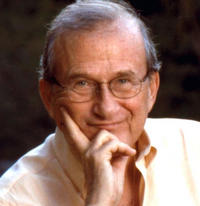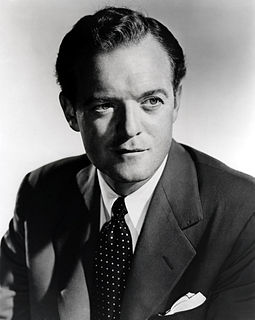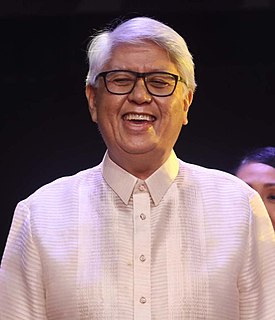A Quote by Larry Gelbart
The subtle differences in language and humor that get lost in translation, for example, make it almost impossible for big companies to do something that will appeal at home and abroad.
Related Quotes
In translation studies we talk about domestication - translation styles that make something familiar - or estrangement - translation styles that make something radically different. I use a lot of both in my translation, and modernism does both. For instance, if you look at the way James Joyce presents Ulysses, is that domesticating a classic? Think of it as an experiment in relation to a well-known text in another language.
Their [American banks] big issue will be if they want to deal with the biggest companies, which are doing a lot of business overseas. How they do that is a big question. It's almost impossible to build a global investment bank from scratch. If they want to do that, they probably will have to do an acquisition.
The idea of critical windows extends beyond just vision, of course: almost every system in the brain has a critical window when it needs to experience certain stimuli, or it won't get wired up properly. The most obvious example is language: if you don't learn a language early on, it's nigh impossible to become truly fluent.
There is an old Italian proverb about the nature of translation: "Traddutore, traditore!" This means simply, "Translators-traitors!" Of course, as you can see, something is lost in the translation of this pithy expression: there is great similarity in both the spelling and the pronunciation of the original saying, but these get diluted once they are put in English dress. Even the translation of this proverb illustrates its truth!
I studied Comparative Literature at Cornell. Structuralism was real big then. The idea of reading and writing as being this language game. There's a lot of appeal to that. It's nice to think of it as this playful kind of thing. But I think that another way to look at it is "Look, I just want to be sincere. I want to write something and make you feel something and maybe you will go out and do something." And it seems that the world is in such bad shape now that we don't have time to do nothing but language games. That's how it seems to me.
Parla come magni,' It means, 'Speak the way you eat,' or in my personal translation: 'Say it like you eat it.' It's a reminder - when you're making a big deal out of explaining something, when you're searching for the right words - to keep your language as simple and direct as Roman rood. Don't make a big production out of it. Just lay it on the table.
New artists will be discovered and trained. Moreover, when the artists who've gone abroad return home, they can share and pass on skills and knowledge to their peers here. I am certain their stints abroad will make them better artists and mentors. It will teach them discipline and independence. It will broaden their horizons.
When we first started our internet company, 'China Pages', in 1995, and we were just making home pages for a lot of Chinese companies. We went to the big owners, the big companies, and they didn't want to do it. We go to state-owned companies, and they didn't want to do it. Only the small and medium companies really want to do it.






































